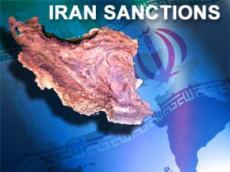|
|
TODAY.AZ / World news
Anti-Iran sanctions discussed in U.S. Congress
18 July 2017 [17:05] - TODAY.AZ

By Azernews
By Kamila Aliyeva
Washington-Tehran ties are currently a hot topic for discussion, as the consultations on imposing additional sanctions against Iran and Russia are underway in the U.S. Congress.
The U.S. administration is planning to introduce new sanctions against Iran in the near future in connection with its program of developing ballistic missiles and alleged support for terrorism, TASS reported.
Tehran allegedly violates the "spirit of agreement" on the Joint Comprehensive Plan of Action. Nevertheless, new restrictive measures will not be linked to Iranian nuclear program.
The new sanctions, according to the representative of the White House, will be designed to counter large-scale expansion of Iran's Armed Forces, as well as its operations in Syria and the Middle East in general.
The sanctions will target the Islamic Revolution Guards Corps (IRGC), the elite component of the Armed Forces, Iranian officials and legal entities.
The sanctions list will include 16 Iranian organizations and people who, according to Washington, "support the illegal and criminal activities of Tehran in the region."
Iranian Foreign Minister Mohammad Javad Zarif, who is currently on a state visit to New York, advised the United States to rethink its approach to sanctions and realize that the pressure does not work. Speaking in New York, he noted with regret that the U.S. continues to create "more and more new" sanctions.
Zarif also said that he had not yet communicated with the representative of the U.S. presidential administration.
"There is no communication between me and Secretary of State Rex Tillerson, but this does not mean that it is impossible. There are opportunities for involvement in discussion on the issue of nuclear deal. We are always open, my colleagues are on regular contact with American counterparts on the implementation of the nuclear deal," he said.
Meanwhile, the quarterly report on the implementation of the agreement, which states that Iran is in compliance with the deal, was sent to the U.S. Congress. The President is obliged to notify the Congress of the implementation of the agreement every 90 days.
The Iran nuclear deal was negotiated in July 2015 between Iran, the five permanent members of the United Nations Security Council and Germany. By ratifying the plan, Iran agreed to scale down its nuclear activities in exchange for sanctions relief.
The agreement provides that in return for verifiable abiding by its commitments, Iran receives relief from U.S., European Union, and UN Security Council nuclear-related economic sanctions.
At the same time, the U.S. retains sanctions against Iran on the missile program, human rights and on suspicion that Tehran sponsors terrorism.
Earlier in June 2017, the U.S. Senate voted to advance a bill that would impose new sanctions on Iran over its ballistic missile development, arms transfers and its alleged support for Islamist militant groups and human rights violations.
URL: http://www.today.az/news/regions/163309.html
 Print version
Print version
Connect with us. Get latest news and updates.
See Also
- 15 November 2025 [09:00]
New "viral" chocolate create in UAE - 15 November 2025 [08:00]
China plans to limit car acceleration to 100 km/h - 14 November 2025 [23:23]
US limits visas for tourists with chronic illnesses - 14 November 2025 [21:21]
South Korea plans to build nuclear submarine domestically - 14 November 2025 [20:23]
Mercedes plans new models in Korea by 2027 - 14 November 2025 [19:21]
Baidu to launch Kunlun M100 AI chip in 2026 - 14 November 2025 [09:00]
Two new chatgpt versions launched - 14 November 2025 [08:00]
Microsoft announce that Windows become AI OS - 13 November 2025 [23:56]
Sweden picks tastiest water - 13 November 2025 [23:23]
Cambodia-Singapore link QR payments
Most Popular
 ANCA has made another attempt to put pressure on Trump: The Theater of the absurd
ANCA has made another attempt to put pressure on Trump: The Theater of the absurd
 Brazil launches Amazon transport alliance
Brazil launches Amazon transport alliance
 Kazakhstan proposes age limits for social media
Kazakhstan proposes age limits for social media
 Two bloggers were detained in Armenia. Hey, human rights activists, where are you?
Two bloggers were detained in Armenia. Hey, human rights activists, where are you?
 Gara Garayev's masterpiece dazzles audience at Heydar Aliyev Palace
Gara Garayev's masterpiece dazzles audience at Heydar Aliyev Palace
 Eurasian logistics without Azerbaijan? An untenable myth
Eurasian logistics without Azerbaijan? An untenable myth
 Azerbaijan's film industry sees significant growth and int'l recognition
Azerbaijan's film industry sees significant growth and int'l recognition
